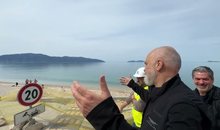
 Flash News
Flash News
Document/ Benet Beci was taken into custody by SPAK before the elections
Montenegrin Army to train Ukrainian soldiers
The Serbian Federation reveals the stadium where it will host Albania on October 11!
The 40-year-old survived the air disaster: When I opened my eyes, I saw bodies everywhere, then...
State Matura 2025, foreign language exam grades published
EU: New package of sanctions against Russia focuses on energy and finance
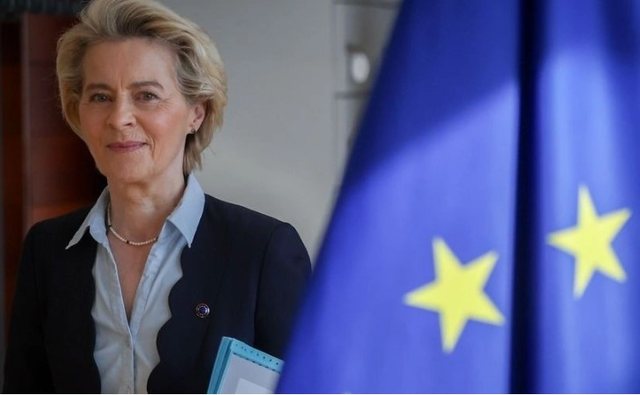
The President of the European Commission, Ursula von der Leyen, together with the EU High Representative, Kaya Kalas, presented the Commission's proposal for the 18th package of sanctions against Russia, which targets its energy and financial sectors.
The Commission President reiterated the EU's call to Moscow for a "full and unconditional ceasefire, of at least 30 days" in Ukraine.
"Our message is very clear: this war must end. A real ceasefire is needed and Russia must sit at the negotiating table with a serious proposal," she said.
'We want peace for Ukraine'
"We want peace for Ukraine, but despite weeks of diplomatic efforts, despite Ukrainian President Zelensky's proposal for an unconditional ceasefire, Russia continues to bring death and destruction to Ukraine," von der Leyen emphasized, noting that
"Russia does not want peace", but "to impose the law of force". Therefore, the EU will increase the pressure because "force is the only language that Russia understands", added the Commission President.
In particular, in the energy sector, the Commission is proposing for the first time to impose a ban on transactions for the NorthStream I and II pipelines. "No EU operator will be able to engage directly or indirectly in any transaction related to the NorthStream pipelines," von der Leyen said.
In addition, the Commission proposes to reduce the maximum price for Russian oil from $60 to $45 per barrel - an issue that von der Leyen said would be discussed at the G7 Summit to be held at the end of the week in Canada.
In addition, the Commission proposes to add to the list of 342 tankers another 77 tankers belonging to Russia's so-called "shadow fleet", which helps it circumvent Western sanctions.
A ban on the import of refined products based on Russian crude oil has also been proposed "to prevent part of Russian crude oil from entering the EU market through the back door," Ursula von der Leyen said.
In the banking sector
In the banking sector, the EU aims to limit Russia's ability to raise capital and conduct transactions. The Commission proposes that the existing SWIFT ban be transformed into a complete transaction ban and implemented in 22 other Russian banks. In addition, the Commission proposes to extend the transaction ban to financial institutions in third countries that finance trade with Russia by circumventing sanctions. It also proposes to impose sanctions on the Russian Direct Investment Fund, its subsidiaries and its investment projects. "This will limit an important channel for financing projects to modernize the Russian economy and strengthen its industrial base," von der Leyen said.
Recently, the Commission is proposing further export bans worth more than €2.5 billion. "This ban will deprive the Russian economy of technology and critical industrial goods," von der Leyen said, noting that machinery, metals, plastics and chemicals are targeted. The export of dual-use goods and technologies used to produce drones, missiles and other weapons systems will also be restricted, to ensure that Russia does not find ways to modernize its weapons with European technology.
In conclusion, von der Leyen said that "we want sanctions to be better implemented and respected", which is why the Commission is proposing to expand the scope of the trade ban that already exists to 22 Russian and foreign companies that provide direct or indirect support to Russia's military-industrial complex.
"Putin's ability to continue the war depends to a large extent on the support he receives from third countries. Those who support Russia's war and its attempt to invade Ukraine bear a great responsibility," von der Leyen said.
Latest news

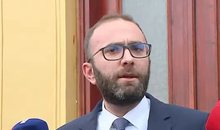
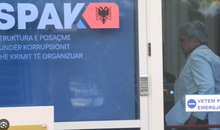
Document/ Benet Beci was taken into custody by SPAK before the elections
2025-06-12 22:52:12
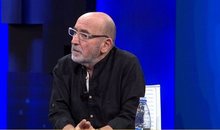
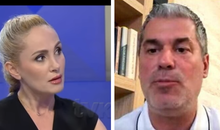

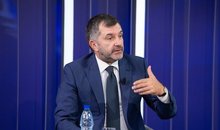


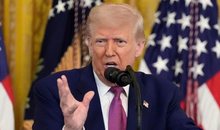
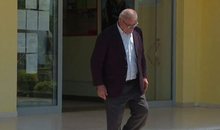
Montenegrin Army to train Ukrainian soldiers
2025-06-12 20:13:45
Italia në alarm, zgjebja po përhapet me shpejtësi
2025-06-12 20:11:39

Dua Lipa gets engaged: I'm happier than ever with Callum Turner
2025-06-12 19:44:29

Around 29,000 Albanians left last year, INSTAT estimates
2025-06-12 19:31:23
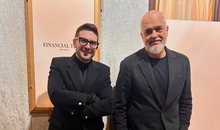
Rama "sacrifices" the socialists to make fun of Soros
2025-06-12 19:13:33
Montenegrin Army to participate in EU military assistance mission to Ukraine
2025-06-12 18:57:36

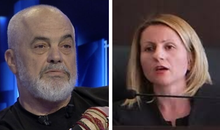

Body acne, six ways to prevent it
2025-06-12 18:05:03
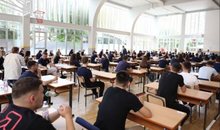
State Matura 2025, foreign language exam grades published
2025-06-12 17:31:26
Video/ This is the moment the Air India plane crashes with 242 people on board
2025-06-12 17:27:59
GJKKO postpones the hearing for 'Golden Bullet' to June 17
2025-06-12 17:23:50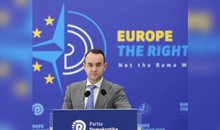
The decline of democracy in Albania, the alarm from the European Parliament
2025-06-12 17:03:38
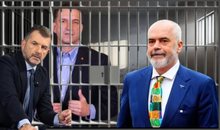
What does the murder of Superman Veliaj reveal about May 11?
2025-06-12 16:40:53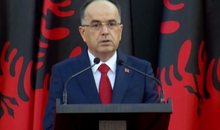


UN report: Europe is surrounded by a belt of countries in crisis
2025-06-12 16:08:47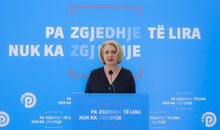
Sula: The scandal with the state matura, a failure of the education system
2025-06-12 16:08:42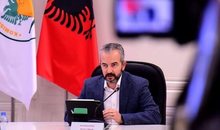

'I have no affection', Erion Isai separates from his wife
2025-06-12 15:40:38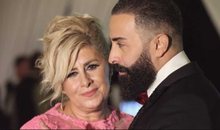

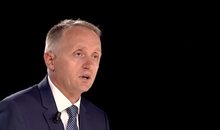
On the 84th anniversary, the SP is ever bigger, Albania is ever smaller
2025-06-12 15:07:25
A "lazy day" a week can reduce stress and stroke risk
2025-06-12 14:56:30

Tragic in Fier, 28-year-old found dead in the yard of his apartment
2025-06-12 14:39:15
How does temperature affect body composition?
2025-06-12 14:33:18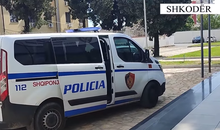
Throwing company waste into the Buna River, 31-year-old employee prosecuted
2025-06-12 14:30:11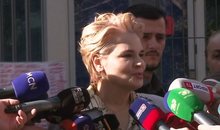
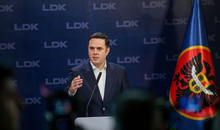
LDK's Abdixhiku unveils 15-point agenda for a unity government
2025-06-12 14:14:24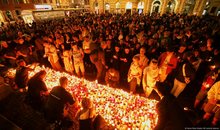
From shootings to stabbings/The history of deadly school attacks
2025-06-12 14:11:51
3 Albanians, part of criminal organizations, extradited to Italy
2025-06-12 13:59:15
A 26-year-old man is arrested for the armed conflict in Ali Dem
2025-06-12 13:40:31
Report/ Albania worsens in gender equality index
2025-06-12 13:40:14

Quarrel between neighbors in Patos, 35-year-old injured with screwdriver
2025-06-12 13:07:05

Accident on the Krahes-Memaliaj axis, a 65-year-old man is injured
2025-06-12 12:45:49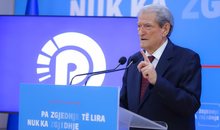

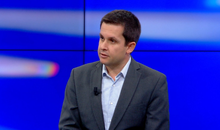
Demand a recount of votes in Tirana, the Court dismisses Alimehmet's case
2025-06-12 12:22:08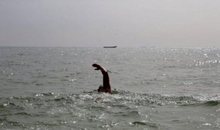
Suffering cardiac arrest, vacationer dies on Qerret beach
2025-06-12 12:05:48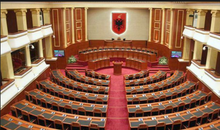
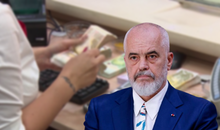
The market is "demanding" a minimum wage increase
2025-06-12 11:52:37
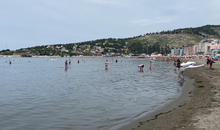
Alarm on the coast/ Elderly woman from Kosovo risks drowning!
2025-06-12 11:25:51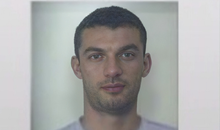
The hearing for "Golden Bullet" is postponed due to the lack of lawyers.
2025-06-12 11:06:27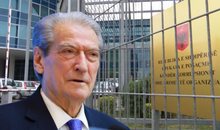
The Special Court schedules the hearing for the “Partizani” case
2025-06-12 11:00:42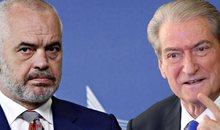
"We work to steal"/ Berisha releases Rama's video: The first time he is honest!
2025-06-12 10:52:11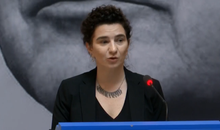


US limits non-essential staff at embassy in Iraq after rising tensions with Iran
2025-06-12 10:19:44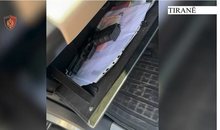

Hero in Greece/ Albanian immigrant saves two children from drowning in river
2025-06-12 09:52:46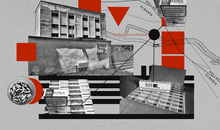
Albanian Customs Officials Crack Down on Cigarette Smuggling Business
2025-06-12 09:37:17

26 years of freedom! Kosovo marks Liberation Day today
2025-06-12 09:14:19
Clear skies across the country, weather forecast for today
2025-06-12 09:03:08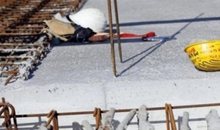
The level of salaries in construction and tourism remains below average
2025-06-12 08:49:54
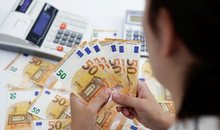

Murder in Xibar i Klos/ Hazbi Velsula, the victim's cousin, in custody
2025-06-12 08:23:45
Morning Post/ In 2 lines: What mattered yesterday in Albania
2025-06-12 08:09:51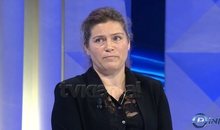
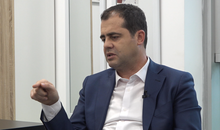
Bylykbashi: The EPP Assembly adopted the strongest resolution in this forum
2025-06-11 22:46:15
A person is found dead in Klos, suspected of being murdered
2025-06-11 22:33:38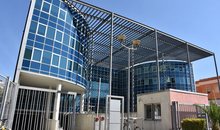
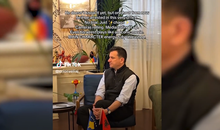

Rape the cleaning worker in Athens, the Greek police declare the Albanian wanted
2025-06-11 21:30:13
Disappointment with Latvia, Elseid Hysaj reacts after disappointing transfer
2025-06-11 21:15:08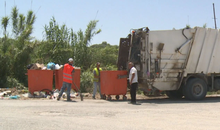
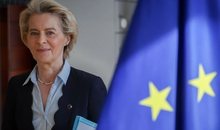
EU: New package of sanctions against Russia focuses on energy and finance
2025-06-11 20:51:17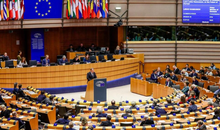

Scandal in Lezhë/ The apartment is covered by sewage
2025-06-11 20:37:59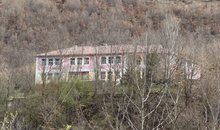
Rural schools left behind in the use of digital tools
2025-06-11 20:09:51
Kosovo bans import of sheep and goats from Albania
2025-06-11 20:01:17
Shot in the head, former Albanian policeman dies after 3 days
2025-06-11 19:41:08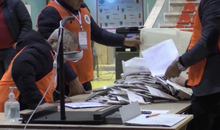
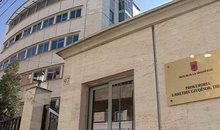

Weather-shaping factors: How cloud-dwelling microbes affect our lives
2025-06-11 19:01:22

